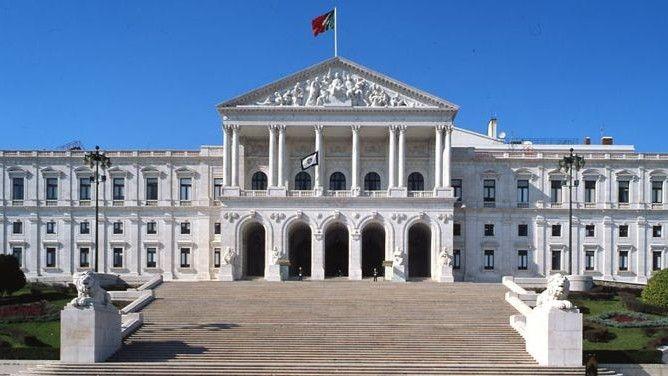Who are the main parties for the local elections?
Don’t be surprised if you find many different parties on the ballot paper for the next local elections. Here are the summarised history and values of the Portuguese parties with parliamentary seats.
On 26 September, both Portuguese and foreign residents will be called to the polls to choose their local authorities in an election that takes place every four years. However, understanding politics in Portugal can be a challenge.
While in the UK and in the US there are only two parties in the parliament, in Portugal the electoral system allows for a greater plurality of parties in parliament, which allows for small parties to have more importance in the political panorama, even in local elections.
Furthermore, at the moment, nine parties with parliamentary seats are running for the local elections. In addition to these nine, that can compete alone or in coalition, there are groups of people who can stand as candidates independent of parties.
Socialist Party (PS)
Located on the centre-left, it is one of the main parties and is currently the ruling party in Portugal, with António Costa as a Prime Minister. The party, founded in 1973, won in 2017 in 161 councils, being the most voted for party in the last municipal elections.
This party is linked to the social-democracy developed in the mid-twentieth century, sharing values of freedom, equality, socialism and solidarity. The PS has a lower degree of conservatism, in relation to other centrist parties, and agrees with state intervention in the economy to improve social justice.
Social Democratic Party (PSD)
Founded in 1974, the Social Democratic Party is, as its name suggests, a party linked to the values of social democracy and, together with PS, is one of the two main parties in Portuguese politics.
What differentiates this party from the previous one is that it is centre-right, which means that it focuses on more liberalising ideas in terms of the economy and is associated with more conservative values. Although commonly known as PSD, on the ballots you will find it in its official form - PPD/PSD.
Four years ago, PSD had its worst municipal result ever, having lost eight councils in relation to 2013.
At the moment, PSD is running alone in 153 municipalities and integrates 146 coalitions with CDS-PP.
CDS-PP
Founded in 1974, this party was traditionally (before Chega and Iniciativa Liberal) the rightmost party in parliament, in spite of being mentioned as a center-right. This party usually presents more conservative proposals than PSD, with a strong emphasis on stronger immigration legislation, opposition to European federalism and tax cuts. CDS-PP is officially an anti-abortion and anti-euthanasia party, defending the right to life.
Who are the main parties for the local elections?
Don’t be surprised if you find many different parties on the ballot paper for the next local elections. Here are the summarised history and values of the Portuguese parties with parliamentary seats.
On 26 September, both Portuguese and foreign residents will be called to the polls to choose their local authorities in an election that takes place every four years. However, understanding politics in Portugal can be a challenge.
While in the UK and in the US there are only two parties in the parliament, in Portugal the electoral system allows for a greater plurality of parties in parliament, which allows for small parties to have more importance in the political panorama, even in local elections.
Furthermore, at the moment, nine parties with parliamentary seats are running for the local elections. In addition to these nine, that can compete alone or in coalition, there are groups of people who can stand as candidates independent of parties.
Socialist Party (PS)
Located on the centre-left, it is one of the main parties and is currently the ruling party in Portugal, with António Costa as a Prime Minister. The party, founded in 1973, won in 2017 in 161 councils, being the most voted for party in the last municipal elections.
This party is linked to the social-democracy developed in the mid-twentieth century, sharing values of freedom, equality, socialism and solidarity. The PS has a lower degree of conservatism, in relation to other centrist parties, and agrees with state intervention in the economy to improve social justice.
Social Democratic Party (PSD)
Founded in 1974, the Social Democratic Party is, as its name suggests, a party linked to the values of social democracy and, together with PS, is one of the two main parties in Portuguese politics.
What differentiates this party from the previous one is that it is centre-right, which means that it focuses on more liberalising ideas in terms of the economy and is associated with more conservative values. Although commonly known as PSD, on the ballots you will find it in its official form - PPD/PSD.
Four years ago, PSD had its worst municipal result ever, having lost eight councils in relation to 2013.
At the moment, PSD is running alone in 153 municipalities and integrates 146 coalitions with CDS-PP.
CDS-PP
Founded in 1974, this party was traditionally (before Chega and Iniciativa Liberal) the rightmost party in parliament, in spite of being mentioned as a center-right. This party usually presents more conservative proposals than PSD, with a strong emphasis on stronger immigration legislation, opposition to European federalism and tax cuts. CDS-PP is officially an anti-abortion and anti-euthanasia party, defending the right to life.






